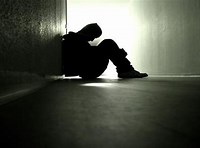By: Alora E. Peters, Arts and Culture Editor
An unpredictable virus that has spread across the globe. Protests, riots, shootings, lootings, and social unrest. Deadly wildfires, smog, hurricanes, and tropical storms. A tumultuous upcoming election…
Could 2020 get any more stressful?
No one can deny that the beginning of this new decade has been marked by bad news and more bad news, and the effects of these stressors are being felt. Statistics released by the Centers for Disease Control and Prevention give an insight into a rising mental epidemic.
The CDC conducted a study among United States adults between June 24-30 to assess their mental wellbeing. During this short period of time, at least 40% of respondents reported experiencing some form of negative mental or behavioral health condition, including 10.7% who reported strongly considering suicide over the past month.

If you feel like you are constantly checking your phone, news feed, or social media accounts for reassurance, consider taking a break and learning to face uncertainty in small ways. (Photo Credit: Tesh)
The numbers were particularly high among college-age young adults, aged 18-24, with nearly 75% having reported at least one adverse mental or behavioral symptom during the survey period.
In 2018, when the most recent statistics were released, over 6,800 persons aged 10-24 lost their lives to suicide—a 54.7% increase since 2007—according to the Centers for Disease Control and Prevention.
These are both terribly sad and terribly alarming statistics. Given that September is National Suicide Prevention Month, it is doubly important for everyone to be aware of ways to prevent this grave killer that is just as prevalent and deadly as COVID-19.

The Counseling Services office is currently located in Saint Francis Hall—along with other invaluable resources such as University Ministry and Green Dot—if you are having a difficult time. (Photo Credit: Alora Peters)
“If a student is experiencing serious thoughts about suicide, or knows someone who is, they need to call 911 immediately,” said Tiffany Nelson, a Prevention Counselor here at Saint Leo University.
“The National Suicide Prevention Lifeline is also a free and confidential resource that has crisis counselors available 24/7,” Nelson added. “They are available to talk if you are experiencing any crisis, not just suicide-related.”
Anyone can reach the National Suicide Prevention Lifeline by phone at 1-800-273-TALK (8255), or by texting “HOME” to 843843.
Additional resources are available to students on Saint Leo’s home campus via the University’s counseling services.
“At this time, we are offering both phone and Zoom options to meet with students for free, confidential counseling sessions,” said Nelson. A student can make an appointment over the phone by calling the counseling office at 352-588-TALK (8255), or by sending an email to Nelson or her colleague, Lawson Dolly.
While the counseling office is open only from 8:00am to 5:00pm on weekdays, students calling in after hours will still be “immediately connected to an on-call therapist,” said Nelson.

September is National Suicide Prevention Month. (Photo Credit: Wallpaper Up)
For students that are struggling with less severe forms of depression and anxiety, there are still plenty of resources and methods to assist with restoring a peaceful heart and mind.
“During these anxiety-provoking times, it is important to remember the tried-and-true anxiety prevention and reduction strategies,” said Nelson. “Getting adequate sleep, exercising regularly, practicing mindfulness, spending time in nature, and employing relaxation techniques.”
It is also equally important to omit unhealthy behaviors that could be contributing to heightened stress and depression issues.
“People might try to distract themselves by drinking, eating, and watching Netflix more than usual,” said Nelson. “Although these behaviors can help momentarily, they can make anxiety worse in the long run. Anxiety will pass sooner when we acknowledge it, rather than run from it.”
Avoiding or ignoring stressful circumstances can have negative effects on a person’s mental wellbeing, but constant exposure to a stress-inducing situation can be just as harmful.
“People might repeatedly seek reassurance from family, friends, or health experts. Or they might obsessively check news streams, hoping to calm their fears,” said Nelson. “COVID-19 brought a lot of uncertainty and fear, and many people’s natural reaction is to seek certainty. If you find yourself feeling like you are constantly checking your phone, consider learning to gradually face uncertainty in small ways in daily life.”




